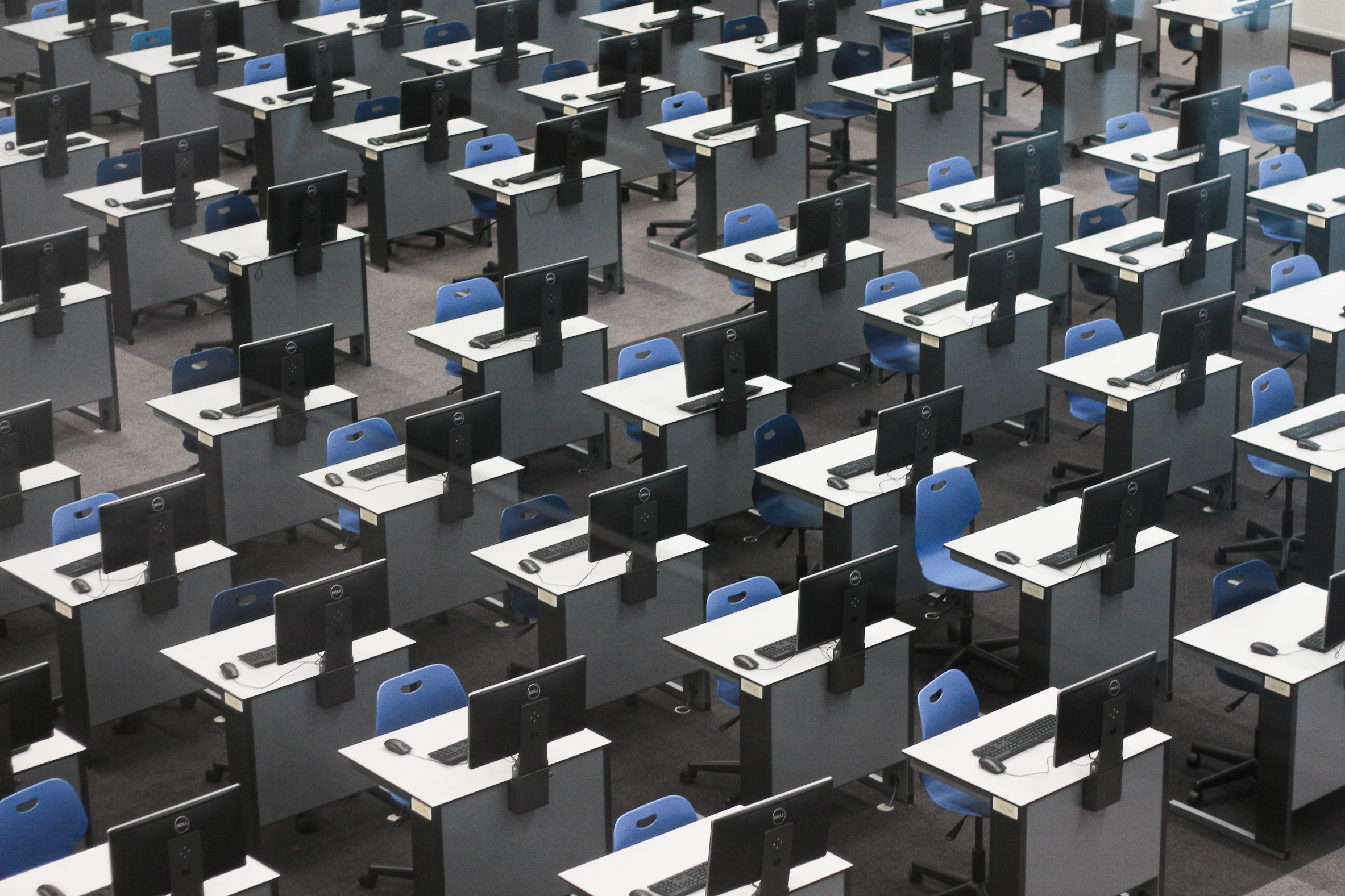The Dutch government has announced a lockdown. Universities must also close their doors. This will last until after the Christmas holidays and maybe even longer.
It will be silent again on campus. (Photo: Justyna Botor)
The Outbreak Management Team (OMT) experts have advised the outgoing cabinet to apply the strict lockdown in order to stop the advance of the omicron variant of the coronavirus. It is spreading like wildfire. The cabinet accepts this recommendation. It is still unclear how dangerous the new variant is, but the cabinet wants to prevent enormous pressure on hospitals and intensive care units.
Exams will go ahead and libraries will remain open
Education may reopen on 10 January, after the Christmas holidays. The cabinet will decide on this on 3 January. Other parts of Dutch society will be closed until 14 January.
Preliminary examinations
Students and teachers will not be allowed to come to campus for the time being. Promotions and inaugural lectures will again be online and without an audience. For TU Delft employees who do not have work on campus, a home-working advice has been in place since 26 November, with the exception of lab research. There are also exceptions — just like in previous lockdowns — for vulnerable students and certain practical classes. The preliminary examinations and tests will also go ahead. The libraries of the educational institutions will remain open. Other study areas can also remain open for supporting students. There is a maximum of 75 persons per room.
- An overview of all the measures can be found on TU Delft’s corona website.
In the coming weeks, the cabinet hopes to give a booster, i.e. a third vaccination, to as many people as possible. This will better protect people against the coronavirus, according to Jaap van Dissel (RIVM director of infectious disease control) during the press conference.
At the start of the new academic year, outgoing minister Van Engelshoven had said that higher education would no longer be closed. That promise has now been broken; the cabinet is hitting the emergency brake.
Previous measures (such as the evening lockdown) hardly affected higher education this autumn. There was criticism of the coronavirus policy in higher education, which would take too little account of the spreading of the virus. Some students felt compelled to attend preliminary examinations or classes due to the attendance requirement, even if they had coronavirus-like symptoms.
One and a half metres
But the cabinet did not want to announce a stricter policy. Even the one and a half meters distance did not apply to higher education. The only real limitation was that 75 students were allowed to gather in lecture halls.
‘The mental health of young people is under enormous pressure’
So now there is another lockdown. The two national student organisations LSVb and ISO can understand it, but are disappointed. “The mental health of young people is under enormous pressure due to the coronavirus crisis”, says Ama Boahene, chair of the National Student Union. “By closing education, even more young people will have to deal with loneliness and psychological complaints”.
“The closure of higher education is hitting us hard; we had hoped that we would be able to finish the year in person just before the Christmas holidays”, says Lisanne de Roos, chair of the Interstedelijk Studenten Overleg.
“But we are holding on to the idea that if we bite the bullet now, we can resume in-person education after the Christmas holidays”.
Employees
This is also the response from the universities and universities of applied sciences. “This news will hit our students, lecturers, and employees hard”, says Maurice Limmen, chair of the Association of Universities of Applied Sciences. “Recently, we have always prioritised the importance of in-person education because we know how important it is for the mental health of our students. We therefore sincerely hope that this situation is short-lived”.
“Just like for the rest of the Netherlands, this is a huge setback for our employees and students”, says Pieter Duisenberg, chair of the Universities of the Netherlands, “but of course we respect the government’s decision. Fortunately, preliminary examinations can take place in person and the university libraries will remain open”.
HOP, Bas Belleman
Translation: Taalcentrum-VU
Do you have a question or comment about this article?
redactie@hogeronderwijspersbureau.nl


Comments are closed.